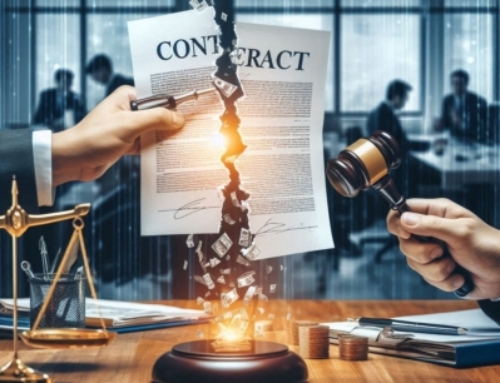Willie Miller vs. American Honda Motor Company, Inc.
Case Background
On September 22, 2021, Willie Miller filed a breach of warranty lawsuit against American Honda Motor Co. Inc. alleging that they violated multiple civil laws due to their failure to comply with statutory obligations during the warranty period.
The case was filed in the California Superior Court, Los Angeles County. Honorable Christopher K. Lui presided over this case. [Case number: 21STCV34912]
Cause
Damages
Willie Miller filed a lawsuit against American Honda Motor Company, Inc., claiming the company failed to fulfill its legal obligations. This failure caused Miller to incur damages estimated at no less than $25,001. To address these damages, Miller pursued legal action under California Civil Code section 1794.
Miller also sought civil penalties under Civil Code section 1794(c) or (e). While pursuing these penalties, Miller ensured they would not overlap, in accordance with section 1794(f). The requested penalty amounted to twice the actual damages. Additionally, Miller alleged that Honda violated its implied warranty obligations, further supporting the legal claims.
As part of the relief sought, Miller requested reimbursement for actual damages and restitution to compensate for the company’s failures. Miller also sought consequential and incidental damages, civil penalties, legal fees, and court costs. Furthermore, the claim included a request for prejudgment interest and any additional relief the court deemed appropriate.
Key Arguments and Proceedings
Legal Representation
- Plaintiff(s): Willie Miller
- Counsel for Plaintiff(s): David W. Lunn | Tionna G. Carvalho
- Defendant(s): American Honda Motor Company, Inc.
- Counsel for Defendant(s): Theodore Dorenkamp, III
Claims
Miller accused Honda of violating California warranty laws by failing to meet its legal obligations. The company did not repair or replace the vehicle or offer restitution after multiple attempts, as required by Civil Code section 1793.2. This failure is the foundation of Miller’s first cause of action, a violation of subdivision (d) of the same section. Honda also failed to begin repairs on time and complete them within 30 days, breaching subdivision (b) of Civil Code section 1793.2, which supports Miller’s second cause of action.
The third cause of action arises from Honda’s failure to provide enough service literature and replacement parts to its repair facilities during the warranty period. This lack of support delayed repairs and hindered Miller’s efforts to fix the vehicle’s defects. Moreover, Honda violated its express written warranty by failing to repair the vehicle after several service attempts, forming the basis of Miller’s fourth cause of action for breach of the express warranty.
Finally, Miller claimed Honda breached the implied warranty of merchantability. The defects made the vehicle unfit for regular use and below the promised standards. These failures led to Miller’s fifth cause of action for breach of the implied warranty of merchantability.
Defense
Honda raised several defenses in response to the Plaintiff’s claims. Honda argued that the complaint failed to state sufficient facts to support the claims. It contended that the Plaintiff did not provide Honda with a reasonable opportunity to address the alleged breach. Honda also denied that the vehicle was defective or unmerchantable at the time it left its possession, asserting that any damage was caused by modifications made by others after the sale.
Furthermore, Honda argued that any damages suffered by the Plaintiff were caused by actions of third parties, not by H0nda’s conduct. It claimed that any alleged damages resulted from the Plaintiff’s own negligence or failure to mitigate damages. Honda also emphasized that its actions were not the proximate cause of the damages, suggesting that any harm was due to factors beyond its control.
Honda raised the defense of unclean hands, claiming that the Plaintiff’s own misconduct barred recovery. It also argued that the Plaintiff’s use of the vehicle and assumption of risk precluded recovery of damages. Defendant further contended that if any breach of warranty occurred, it did not contribute to Plaintiff’s damages.
Lastly, Honda invoked the statute of limitations, asserting that the Plaintiff’s claims were time-barred under various legal provisions. It also pointed out that the Plaintiff’s claims for consequential damages were prohibited by the warranty terms.
Jury Verdict
On September 05, 2024, the twelve-member jury found that American Honda Motor Company Inc. breached the express written warranty and the implied warranty. The jury awarded Willie Miller $29,687.09 in damages.
On September 13, 2024, a judgment consistent with the verdict was awarded.
Court Documents:
Available for purchase upon request







Leave A Comment